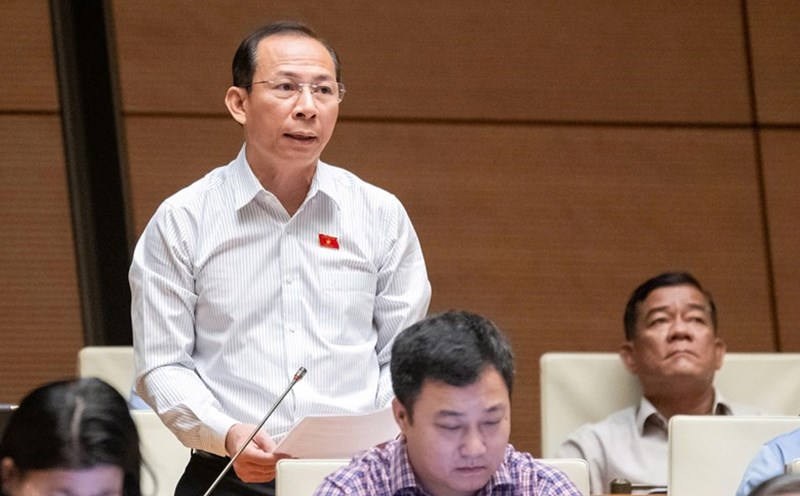What should businesses do?
Resolution 68 has laid the foundation for a strong private economic development strategy, while affirming the central role of enterprises in modernization and international integration.
According to Mr. Le Huu Nghia - General Director of Le Thanh Company, building a team of entrepreneurs with courage, ethics, creativity and integration is a prerequisite for the sustainable development of the private economic sector.
One of the first criteria Mr. Nghia emphasized was "Thuong Ton Legend" - not only the business ethical principle but also an important criterion for the State to evaluate the business. Accompanied by the responsibility of creating jobs, contributing budgets, participating in social and volunteer activities - the pillars creating the image of business attached to the country's development.
However, Mr. Nghia also pointed out: "If we do not innovate thinking and creativity, businesses will fall behind in the context of strong digital transformation and artificial intelligence". According to him, the application of AI and digital transformation is an inevitable step, even needed to be accelerated further if we wanted to elevate our position in the region and globally. This is not just a story about technology, but also a vital requirement to improve productivity, optimize governance and access to the global market.
Mr. Nghia also proposed the need for a clear legal mechanism to protect innovation activities and encourage businesses to boldly commit. In particular, a new point in this resolution is to build a team of entrepreneurs who reach regional and international levels. This directly refutes the psychology of "enterprises do not dare to grow" that has existed for a long time in the business community. If they do not set higher goals, businesses will always be limited to the safe zone.
Administrative reform and capital diversification
From the perspective of local management, Ho Chi Minh City is demonstrating its pioneering role in creating favorable conditions for the development of the private economic sector. According to Ms. Le Thi Huynh Mai - Director of the Ho Chi Minh City Department of Finance, the city is actively improving the business environment, aiming to simplify and digitize administrative procedures.
Ho Chi Minh City has been strengthening the application of technology in the process of registering an enterprise, notifying operation again, and proposing to the Ministry of Finance the plan allows returning the results of handling administrative procedures entirely with digital signatures. This not only saves time and costs for businesses but also improves the operating efficiency of the administrative apparatus.
One of the biggest problems for private enterprises, especially start-ups and innovation enterprises, is the issue of capital. In order to solve this bottleneck, Ho Chi Minh City has proactively diversified financial mobilization channels such as public-private partnerships (PPP), corporate bonds and controlled risky investment funds. At the same time, Ho Chi Minh City has stepped up public investment disbursement, prioritizing the development of infrastructure and supporting industries - fundamental factors to promote production and business.
The establishment of a multidimensional financial ecosystem, combined with an open administrative policy, will be an important support for private enterprises to accelerate and expand their scale, especially in the fields of high technology, logistics, processing and manufacturing and export.
According to experts, Resolution 68 is not only a guideline for private economic development but also a call for the business community to change thinking, improve internal resources to integrate and reach out. The efforts from businesses and the Ho Chi Minh City government are demonstrating close cooperation, taking businesses as the center of all development policies.










